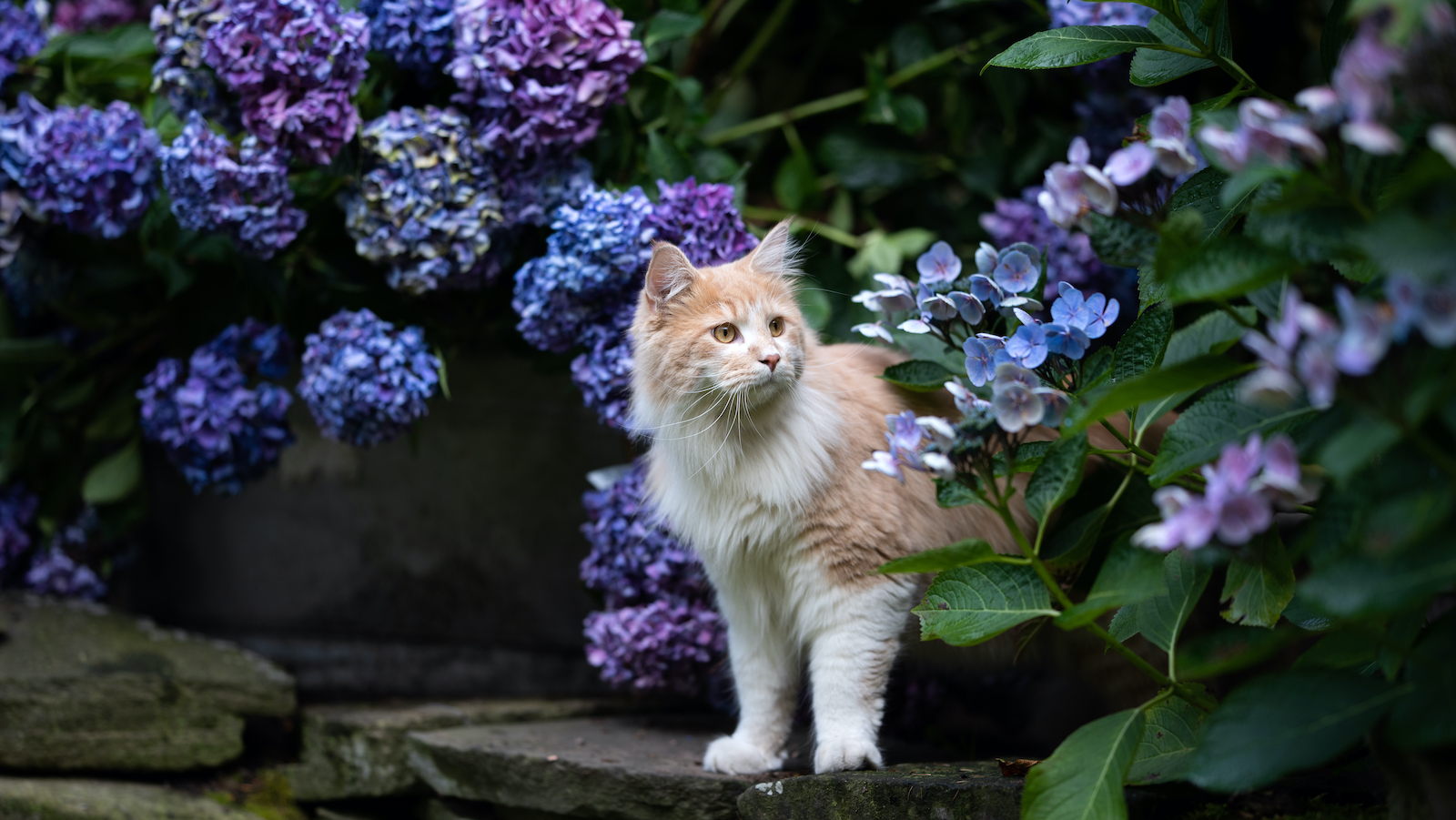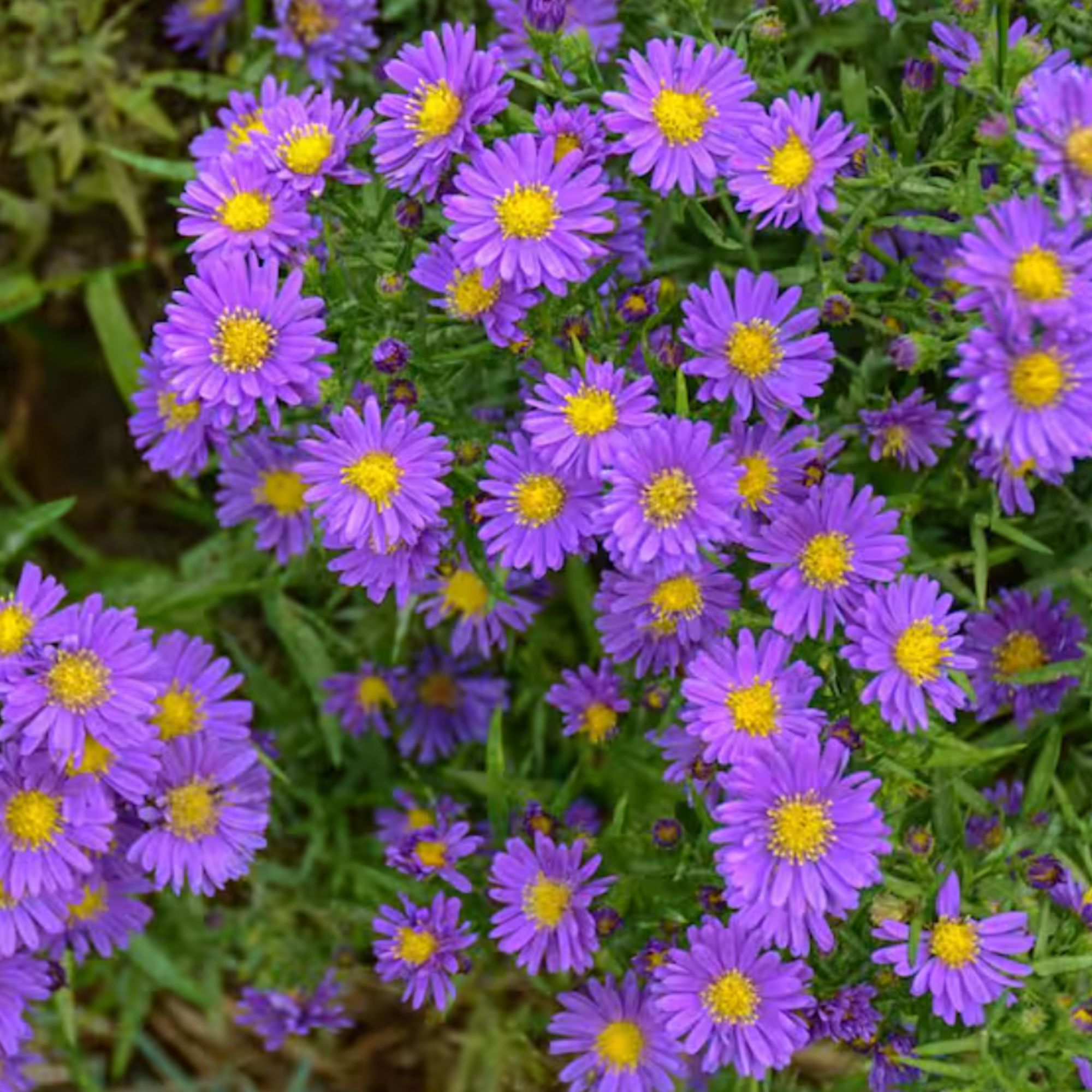
Are hydrangeas poisonous to cats, or can plant and floof parents feel comfortable caring for both simultaneously?
Not all plant babies and fur babies mix well, sadly, including hydrangeas. We spoke to a gardening expert to see how this flowering plant affects our feline companions, what steps should be taken to ensure the safety our furry friends and what to do if they ingest any.
As you begin to learn how to care for hydrangeas in your spring and summer garden, or enjoy blooms in a vase indoors, here's what you need to know about having cats and other animals friends around these plants.
Are hydrangeas poisonous to cats?
Yes, unfortunately, hydrangeas are toxic to cats, so you'll have to be extra alert when deciding on your small garden ideas — especially if your pets like taking nibbles of your petals.
"Hydrangeas contain compounds called cyanogenic glycosides, which can release cyanide when chewed or ingested, potentially causing gastrointestinal symptoms like vomiting and diarrhea in cats," says Gene Caballero, co-founder of GreenPal.
According to the ASPCA, this is also the case with hydrangeas and dogs. The same goes for horses. In addition to gastrointestinal discomfort, ingesting the flower can also lead to depression and a loss of appetite in these animals.
The seriousness of each poisoning case often boils down to how much hydrangea the animal has consumes. The organization urges pet parents to call veterinarians as soon as possible, should their companions experience any of these symptoms.
Hydrangea leaves and buds are believed to be the most toxic part of the plant, and are definitely poisonous to cats, but the active toxic compound — cyanogenic glycoside — is also present in the stalks and flowers.
Can you have cats and hydrangea in the same home?
Drooping hydrangeas are a small issue when compared to the health impact of cats or other animals ingesting any part of the hydrangea. To ensure that you do not encounter any problems, keep the two strictly separate.
"Consider planting them in areas that are not accessible to your pets, or use physical barriers to prevent access," Gene explains. "Regular supervision when pets are in the garden is also advisable."
The Alphatool's 16" × 189" Garden Fences from Amazon or the 24" H x 13" W Metal Fence Panel(Set of 10) from Wayfair can assist in keeping the two apart.
If you're hesitant about growing hydrangeas in the garden and keeping your pet successfully away from them, enjoy a bouquet of beautiful hydrangea blooms in a room at home that's strictly off-limits to pets.
You can also learn how to dry hydrangeas and keep them in the your off-limit room, or hang it on a wall where cats cannot reach.
What to plant instead
The safest way to avoid any issues with plant toxicity around cats is to look for an alternative, cat-safe plant. And the good news is plenty of pretty blooms are fine to have around cats.
"Asters are safe for cats and offer vibrant colors that can match the visual appeal of hydrangeas," Gene says. "They are also hardy and can thrive in a variety of garden settings."

Price: $29.99
Growing between 2-3 feet in size, this Aster is ideal for container planting and borders. It thrives late in the season and won't require staking.
What to do if your cat ingests hydrangea
If you see your cat eating any part of a hydrangea plant, remove the flowers from your room, or your cat from the garden or plant immediately. Take any remaining parts of the plant from your pet's mouth, face and paws and wipe down with a damp cloth to remove further residue.
Place them in a secluded, quiet room, and keep a log of the time you saw it happen. Next, call your veterinary clinic as they will have protocols in place for plant toxicity in cats. They may be able to advise you over the phone, but will likely ask you to bring your cat (and perhaps even a sample of the plant) to the clinic.
If you're not sure your cat has eaten hydrangeas but suspect they might have, speak to your vet even if your pet seems well. Animals, especially small ones with fast metabolisms can deteriorate quickly.
If you are monitoring your pet, keep a keen eye out for odd behaviour (loss of appetite, lethargy, distress) and any symptoms (stomach upset for example) and seek urgent medical attention.
As with most poisoning and toxicity incidents, time can be of the essence. Having your pet's veterinary clinic telephone number saved into your phone or on your emergency speed dials might alleviate the stress of needing to find their details in a rush or panic.
Are you making big plans for your springtime blooms, but find yourself worried about your pet companions? We've rounded up 10 garden plants that are safe for cats and plants that are toxic to cats to help make the floral selection process a bit easier.







